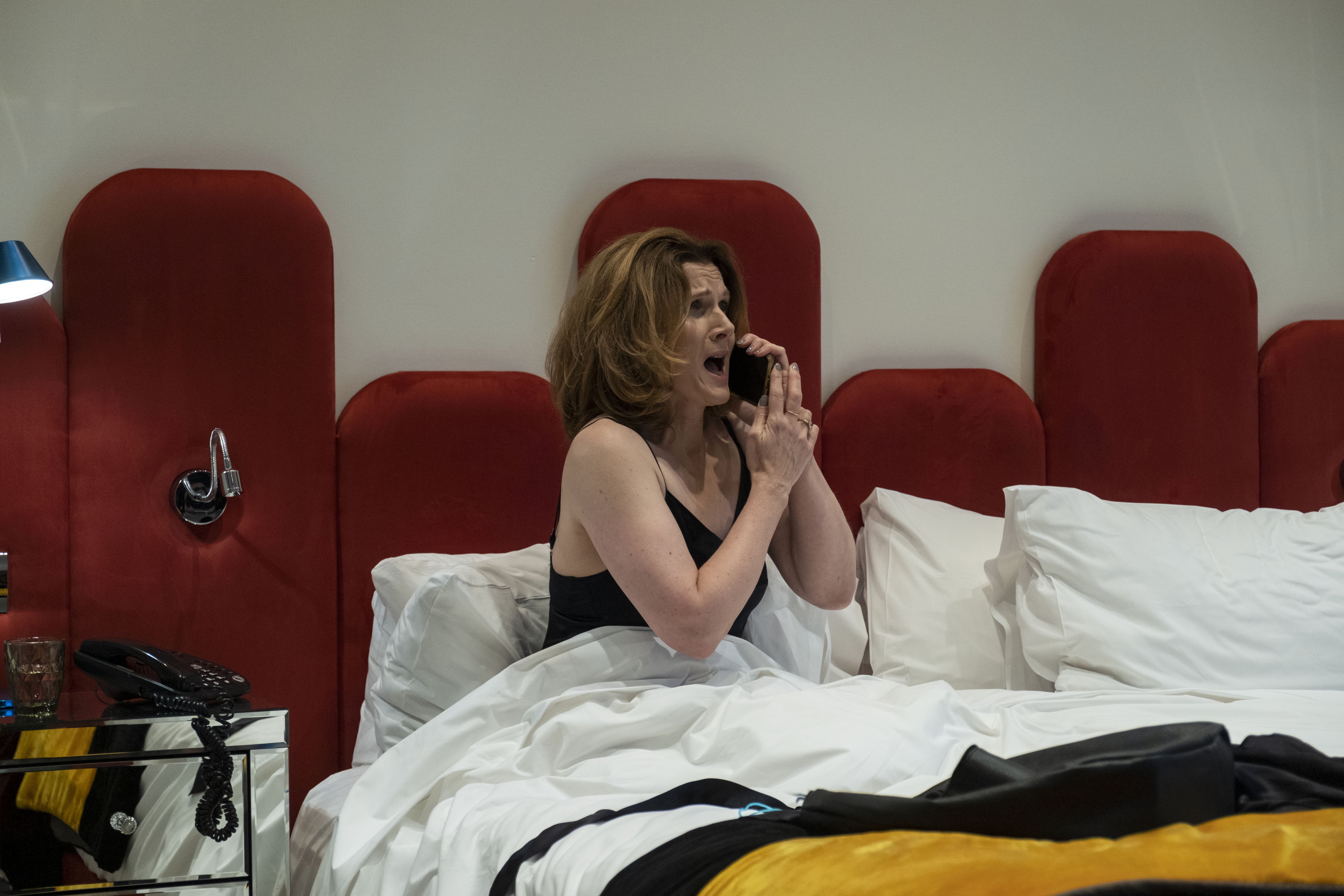
Standing in a hotel room surrounded by her audience, soprano Fiona McAndrew is close enough to hear them breathe.
For McAndrew, who has performed on many of the world’s greatest opera stages, there is nowhere to hide. She has no large stage or orchestra between her and the audience — instead she has to rely on closely listening to pianist David Kelly playing through the clock radio.

"We’ve got to listen like hawks. Usually in the big theatre you look out front to where the big stick is and follow that."
That is one of the mysteries of New Zealand Opera’s production of The Human Voice (La Voix Humaine), by Jean Cocteau and Francis Poulenc.
It is a production that is close to McAndrew’s heart — she has been involved since its inception in a living room in Western Australia when she came up with the idea of staging it in a hotel room.
"It’s something I’ve always wanted to do."
Along with husband Thomas de Mallet Burgess, who is now New Zealand Opera’s general director, and his company, Lost and Found Opera, she created the piece, which had a successful first performance.
"It’s had several inceptions since."
It then went on to be performed at Melbourne’s Port Ferry Music Festival and was recorded by the ABC in Australia.
"I think for me that was a seminal experience. Performing it is wonderful. I’m a theatre performer first and foremost — a singing actor — but doing it in a studio was super-special."
The recording was done in one take and brought some members of the production crew to tears.
"I looked up at the producer, who gave me a wink. I thought this piece is really something, something super-deep and it’s not just the story of lost love and regret and giving things up. There is something really powerful about it."
The work was written by Cocteau in the 1930s and he specified an older woman take the role, but when Poulenc wrote the opera in 1958 it was written specifically for a woman in mid-life — his friend, soprano Denise Duval.
"Taking to it in my mid-40s was an interesting time to do it. I don’t know if the tragedy is greater when the women is young or when the woman is in mid-life, when they might or may not have another significant relationship. It’s a bit ambiguous whether or not she kills herself.
"It has a very beautiful, sad story."

"There are so few pieces that can do that. In opera, there’s pieces on the first flush of love and some on old crones, but not much about the middle bit. It’s more than a sociological look at life, it’s got to be timeless, universal. I think this piece is."
While she has tried to step back from performing, McAndrew is always tempted by something she loves.
"It’s enough to rev the motors up and get going again."
Last year, it was suggested she tour The Human Voice around New Zealand and she could not resist, especially when so many of her colleagues in other parts of the world could not work.
Another sweetener was the chance to see parts of New Zealand she had not previously visited. McAndrew, who is Irish, and her two daughters followed her husband to New Zealand early last year, leaving their home in Perth, Australia, where she had taught opera at the Western Australian Academy of Performing Arts.
"It was lovely to see New Zealand."
However, performing was confronting at times given the Covid situation.
"We’re doing this in a hotel room, so we’re really, really close ... there was the inevitable hacking, coughing and sneezing going on."
When the hotel room door shuts there are a variety of responses from the audience, ranging from discomfort to claustrophobia, she says.
"What they might not realise is ... I can hear them breathing and am aware of their reactions, although I look at them and through them at the same time.
"For me there is still a fourth wall, but for them there isn’t. It’s a kind of paradox really. They’ve paid to hear me, an opera singer, sing, but in a way I’m listening to them. There is such a loop going on the whole time."
She has found while there are individual reactions there are also collective ones.
"Initially, the crowd is quieter, they’re very warm and they come to the theatre wanting to be moved. They’re up for it."
While she enjoys The Human Voice it takes a toll.
"As soon as I finish [each show], I put my feet up and watch junk TV. I have to. It’s such a deep work, it takes a lot out of you."
For McAndrew, a singer’s vulnerability is at its highest just before going on stage.
"I hate that time before a performance, it sucks, and it doesn’t get any better."
However, as soon as she hears the overture, she stops panicking and her breathing slows.
"After 20-30 years you have a conditioned slow-breathe response."
She believes when her nervous system calms down, so too does the audience’s.
"It’s a very weird loop. It happens even at a distance in a big theatre, so my goodness, it happens in small space. I feel the nerves of the audience."
Each of McAndrew’s performances have been quite different as it has been re-costumed and redesigned.
McAndrew, who spent 22 years performing in Europe, is still settling in to her new home, having arrived just before the disruption of Covid.
"It’s been a really difficult introduction to a new country, but I’m grateful and pleased to be here."
To see
The Human Voice
Scenic Hotel Southern Cross
April 17-21












